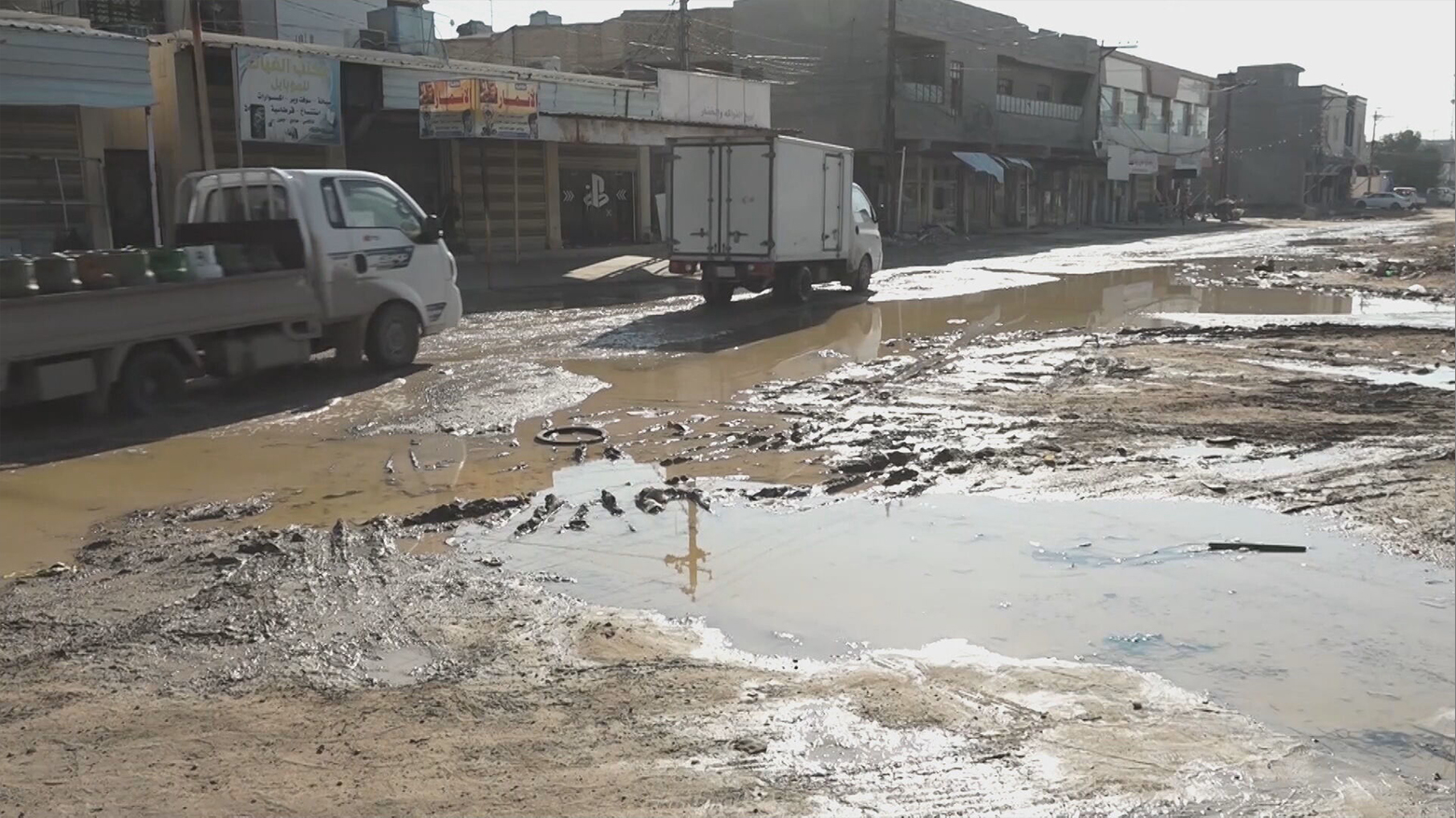Anbar Faces Power Crisis: Calls Grow to Match KRG’s Electricity Success
Residents of Anbar are demanding urgent electricity reforms amid extreme heat and worsening outages. Citing Kurdistan’s near-constant power supply, they blame Baghdad’s corruption and mismanagement. Despite $60B spent since 2003, Iraq still faces blackouts and public outrage.

By Kamaran Aziz
ERBIL (Kurdistan 24) — Residents of Iraq’s Anbar province have voiced growing frustration over deteriorating electricity services amid extreme summer temperatures, urging the federal government to prioritize funding for the power sector. Citizens drew comparisons to the Kurdistan Region, where, despite political and financial disputes, electricity provision remains significantly more stable.
Manzar Abbas, a civil activist in Anbar, told Kurdistan24:
“Year after year, nothing has changed, especially during the summer season when temperatures rise and power outages increase, while the electricity supply rate in the Kurdistan Region is reaching 90% to even 100%. They barely need generators anymore. Thanks be to God, in every aspect, they are better than us—not only in terms of electricity.”
Residents say that despite the Iraqi federal government’s decision to cut off salary payments to the Kurdistan Regional Government (KRG), cities like Erbil, Sulaimani, and Duhok continue to receive uninterrupted electricity services, with minimal reliance on private generators.
Hamed Majid, a resident of Fallujah, echoed the sentiment:
“Electricity in Iraq is terrible. Just look at how good the electricity is in the Kurdistan Region. Even though the federal government has cut their salaries, their electricity is running almost 24 hours. Every summer, Iraqi officials promise to fix the power and improve services, but they never deliver. In this extreme heat, we face a major crisis—temperatures are high, and we barely get electricity for one or one and a half hours.”
Sabar Hamed, a resident of Anbar, added:
“We call on the Iraqi government to ensure a balanced electricity supply among provinces. Electricity in Anbar is very poor. We also demand that the government improve our electricity services like those in the Kurdistan Region, such as in Sulaimani, Erbil, and Duhok.”
The electricity crisis in Anbar reflects a broader systemic failure. A Kurdistan24 report on March 18, 2025, noted that Iraq, despite being one of the world’s largest oil producers, remains dependent on energy imports, particularly from Iran. The country has spent over $60 billion on the electricity sector since 2003, yet continues to suffer rolling blackouts due to rampant corruption, mismanagement, and poor infrastructure.
As highlighted in Kurdistan24’s coverage, the Iraqi government has failed to ensure equitable distribution. MP Salah Mahdi Salman Zaini al-Tamimi from Diyala recently revealed that his province receives only 600 megawatts of electricity despite needing at least 2,100 MW. In contrast, other provinces reportedly receive up to 20 hours of electricity daily.
Corruption in Iraq’s energy sector is deeply entrenched. A Kurdistan24 report from January 2025 quoted citizens who blamed elite mismanagement for the chronic lack of public services. Transparency International has ranked Iraq among the most corrupt countries globally, with one in four public transactions tainted by bribery.
Meanwhile, reports of extravagant luxury hotel projects in Baghdad have sparked public outrage, with watchdogs alleging that political elites are laundering stolen public funds through these developments. A senior Iraqi official told Kurdistan24, “Previously, they used NGOs and salons to whitewash money. Now, they’ve turned to five-star hotels.”
In Basra, where Iraq’s largest oil fields lie, youth unemployment and environmental devastation triggered mass protests. Despite contributing a major share of Iraq’s revenue, Basra residents suffer from poverty, toxic gas flaring, and unfulfilled promises. A recent protest by petroleum engineering graduates was violently dispersed by security forces. Protesters said they wanted not just jobs, but justice, transparency, and clean air.
In stark contrast, the Kurdistan Region is implementing the Runaki Project, a strategic initiative launched by Prime Minister Masrour Barzani aiming for 24-hour electricity across the region by 2026. According to KRG officials, the project has already significantly improved access to reliable power in Erbil, Sulaimani, and Duhok.
As summer temperatures continue to soar, Anbar joins a growing chorus of provinces demanding reform, transparency, and equitable access to electricity. Without systemic change and enforcement of anti-corruption measures, Iraq’s public infrastructure risks collapse—while its citizens endure the consequences of elite-driven misrule.